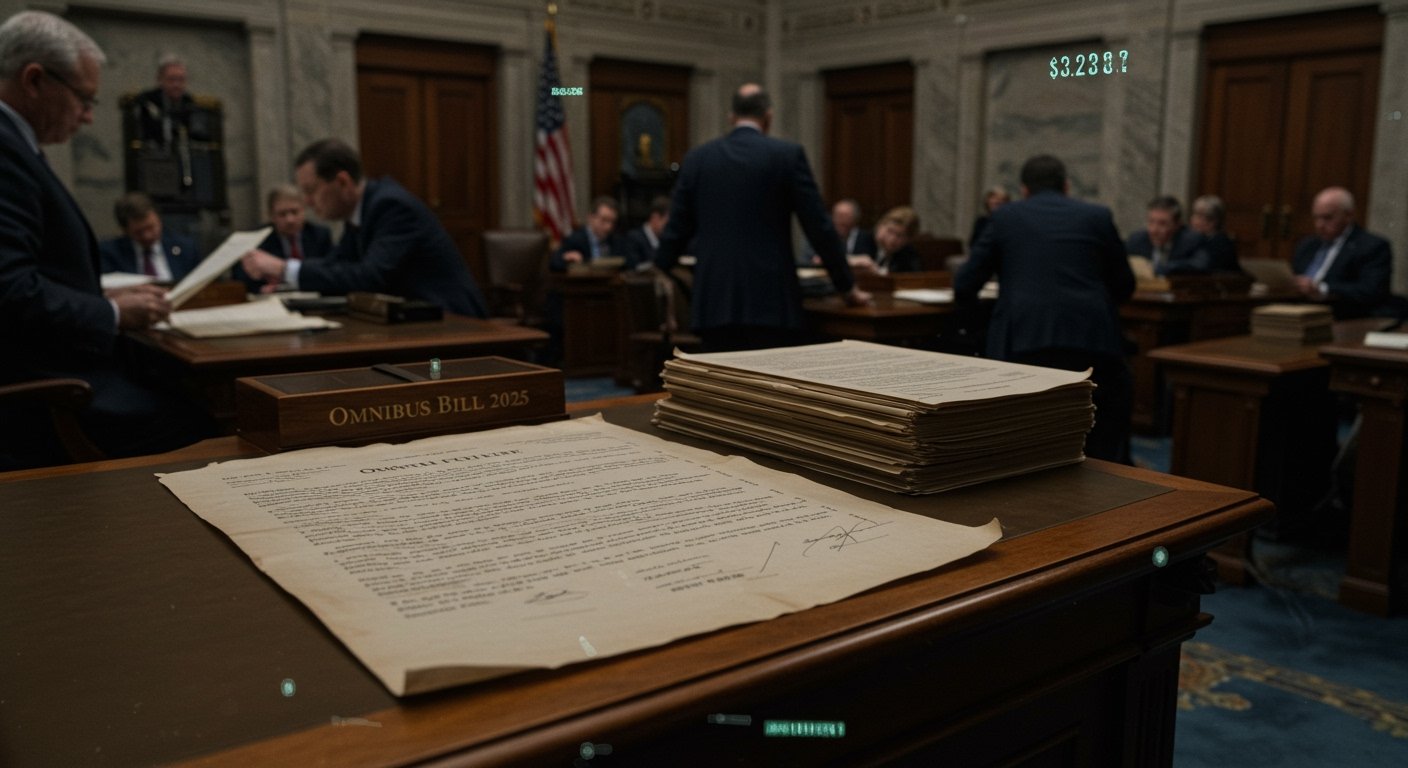Washington D.C. – The Republican-controlled Senate of the United States has taken a critical step forward, voting to advance President Donald Trump’s ambitious “Big Beautiful Bill,” a comprehensive package encompassing significant tax cuts and spending measures.
The procedural vote on Saturday, June 28, moved the landmark legislation, identified by the White House as President Trump’s top legislative priority, to the next stage of debate, substantially increasing its prospects for eventual passage. The measure cleared this initial hurdle with a narrow 51 to 49 tally.
Procedural Passage and Partisan Divide
The vote revealed a deep partisan split, with all Democrats united in opposition. They were joined by two Republican senators who broke ranks to vote against advancing the bill. While Senator Ron Johnson had initially voiced opposition, he reportedly changed his stance to a ‘yes’ for this procedural vote. Senators Rand Paul and Thom Tillis were the two Republican dissenters in the final 51-49 count.
The vote follows intense internal party negotiations. Senators Rick Scott, Mike Lee, and Cynthia Lummis were noted for their efforts in seeking deeper spending cuts within the bill’s framework, reflecting ongoing debates within the Republican caucus over fiscal conservatism and the bill’s potential impact on the national debt.
Key Provisions Spark Controversy
At the heart of the debate surrounding the “Big Beautiful Bill” are several contentious provisions. Among the most criticized are proposed cuts to Medicaid. Critics argue these reductions could severely jeopardize the financial viability of numerous rural hospitals, many of which serve communities heavily reliant on Medicaid funding. Furthermore, opponents contend that these cuts could result in an estimated 8.6 million Americans losing their healthcare coverage, raising significant concerns about access to medical care, particularly for vulnerable populations.
Another key element facing opposition is the bill’s intention to repeal many tax incentives that were previously implemented to support renewable energy projects during the prior administration. Proponents of green energy initiatives argue that removing these incentives would hinder the development and adoption of cleaner energy sources, potentially impacting the nation’s progress towards environmental goals.
Fiscal Impact and Wealth Distribution
Nonpartisan analysts have released projections regarding the potential fiscal consequences of the bill, painting a stark picture for the nation’s finances. They project that a version of the bill currently under consideration is likely to add trillions of dollars to the existing U.S. government debt, which currently stands at $36.2 trillion. This forecast has fueled concerns among fiscal conservatives and deficit hawks regarding the long-term sustainability of the national debt.
Moreover, the analysts’ assessment includes a projection that the bill would contribute to a substantial redistribution of wealth within the United States. Their analysis suggests that the legislation’s provisions are structured in a way that would shift wealth from the poorest 10 percent of Americans towards the wealthiest segment of the population, exacerbating existing concerns about income inequality.
Public Opinion and Political Reaction
The legislation appears to face an uphill battle in winning public support. Recent polling data indicates that the bill is unpopular across a variety of demographic and income groups throughout the country, suggesting a disconnect between the priorities of some lawmakers and the sentiment of the electorate.
Beyond the political arena, prominent figures have also voiced criticism. Billionaire entrepreneur Elon Musk reiterated his own criticism of the legislation on Saturday, adding a notable voice from the business community to the chorus of dissent.
Democratic leaders have sharply criticized the manner in which the bill is being advanced. Senate Democratic leader Chuck Schumer lamented the rapid pace of the bill’s progression through the chamber and highlighted what he described as a lack of sufficient public scrutiny and debate on such a transformative piece of legislation. He echoed concerns about the fiscal implications, predicting that the bill would lead to trillions in future debt. Schumer also pointed to the sheer complexity and length of the measure, necessitating a lengthy reading of the bill’s extensive 940-page text to fully understand its implications.
With the procedural hurdle cleared, the Senate is now poised for more extensive debate and potential amendments to the “Big Beautiful Bill.” However, the significant divisions within both parties and the critical analyses of the bill’s potential impacts on healthcare, the environment, public debt, and wealth distribution signal that the path to final passage remains fraught with challenges.












